(68050 products available)
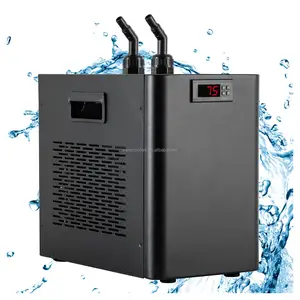






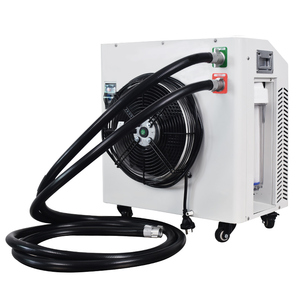


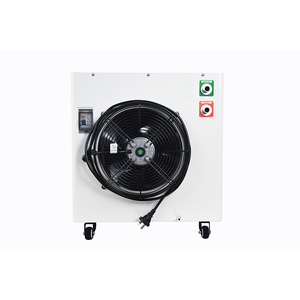







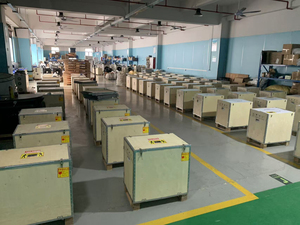











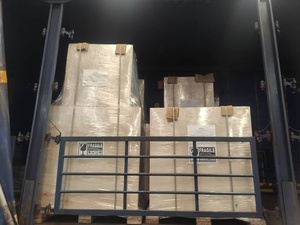








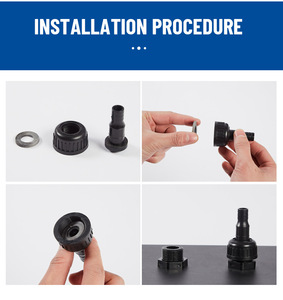
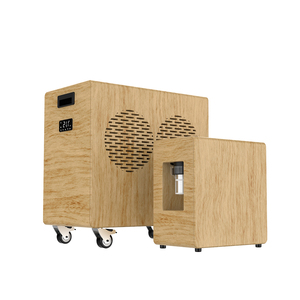


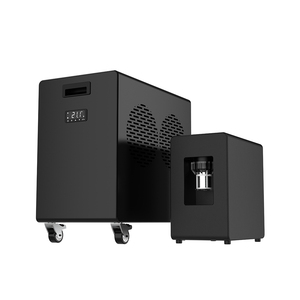



















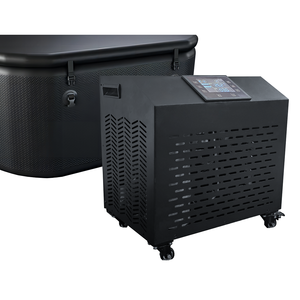









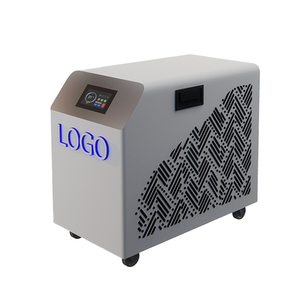

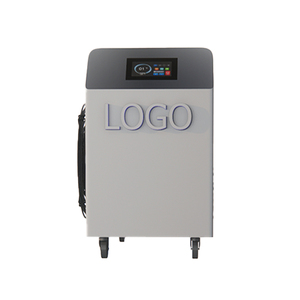
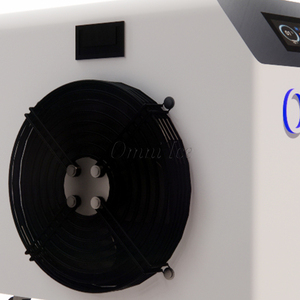





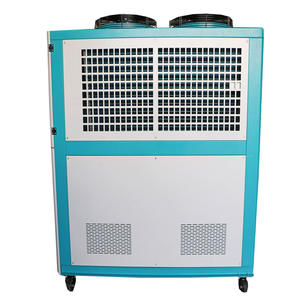




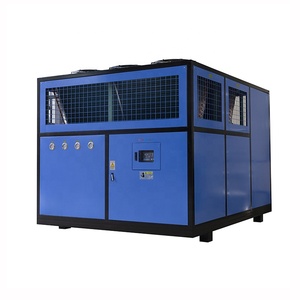



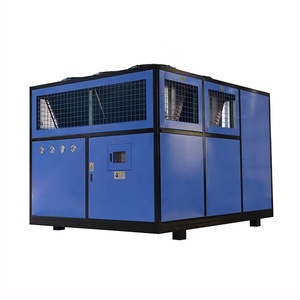


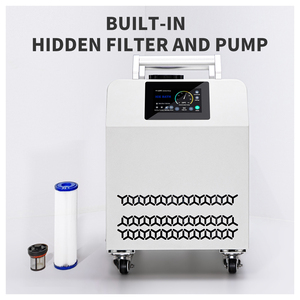

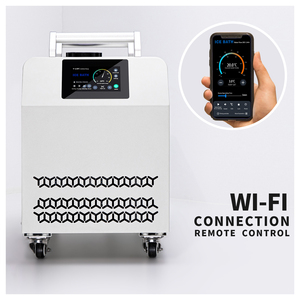

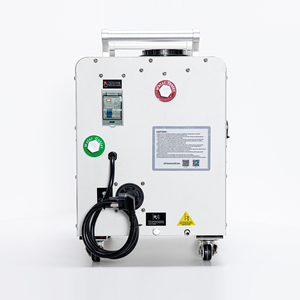



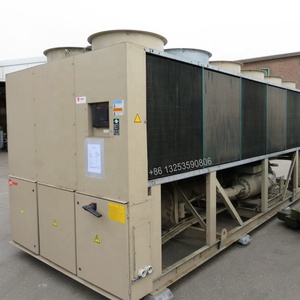






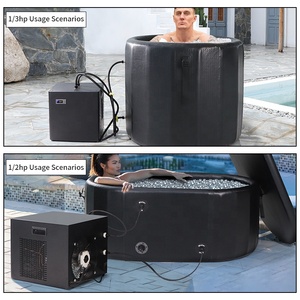



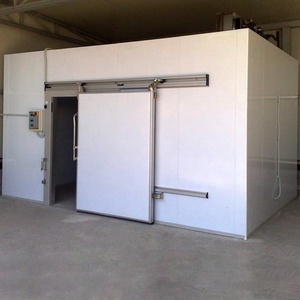



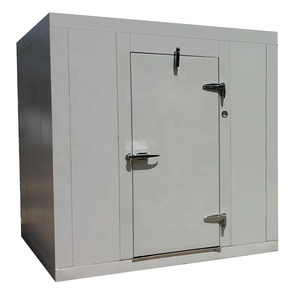








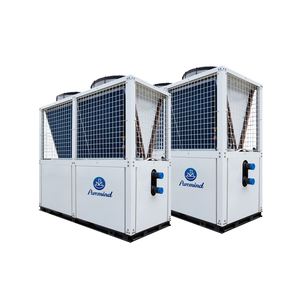


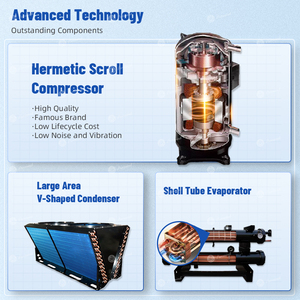
































































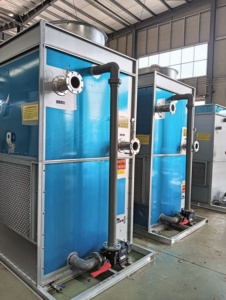









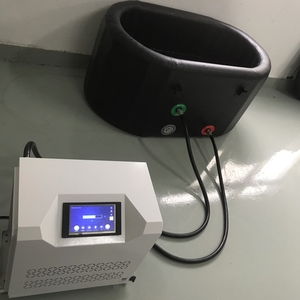
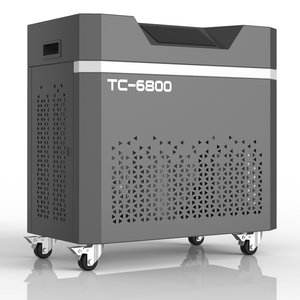
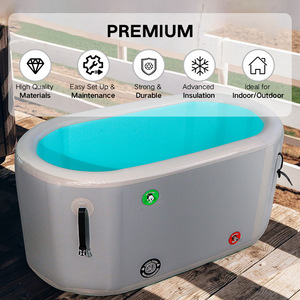
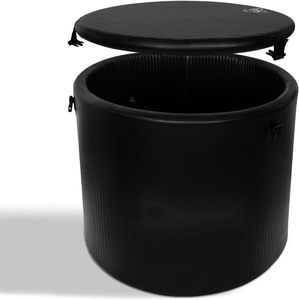
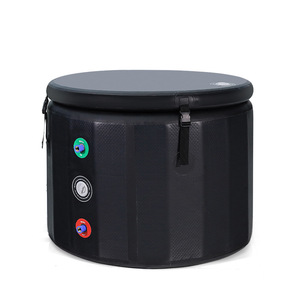
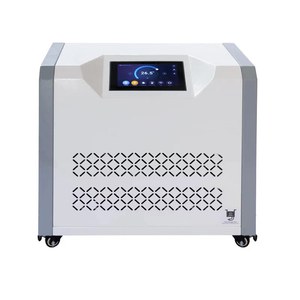





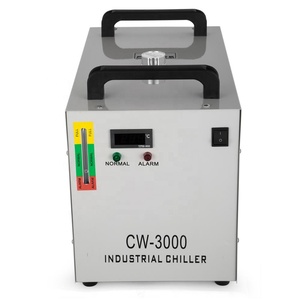







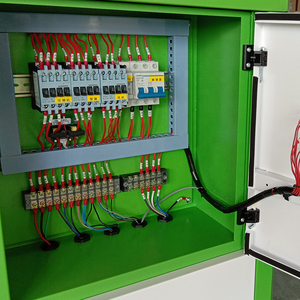




A factory chiller is a refrigeration unit used to remove heat from liquids via a vapor-compression or absorption cooling process. The factory chillers are mainly designed for industrial applications to maintain processes, cool equipment and condensate in factories. Here are some common types of factory chillers:
Vapor Compression Chillers
Vapor compression chillers are the most commonly used factory chillers. They are cooling systems that use the refrigeration cycle to remove heat from a liquid. The process involves four main components: an evaporator, a compressor, a condenser and an expansion valve. There are two main types of vapor compression chillers: electric vs. water-cooled condensers.
Air-Cooled Chillers
Air-cooled chillers use the heat transfer with air to remove heat from the refrigerant. Typically, they use fans to blow away the heated air. As a result, they are great for outdoor use or enclosed well-ventilated spaces. Also, they are easier to install than water-cooled condensers. Therefore, air-cooled chillers are commonly used for small to medium cooling capacity.
Water-Cooled Chillers
Water-cooled chillers use the heat transfer with water to remove heat from the refrigerant. They require additional cooling towers or a centralized water system. Thus, water-cooled chillers are suitable for large capacities and high efficiency. However, water-cooled chillers are more complex to install and maintain.
Absorption Chillers
Absorption chillers are factory chillers that use thermal energy to drive the cooling process. Unlike vapor compression chillers, which rely on electricity to operate, absorption chillers use heat to absorb and release refrigerants to produce cooling. Absorption chillers have evaporators, generators, condensers, absorbents and expansion valves. They are suitable for large cooling capacities. Also, they can provide cooling for industrial processes, large commercial buildings and district cooling systems.
Capacity:
Factory chillers are available in different capacities, which is typically measured in kilowatts (kW) or tons. One ton equals 3.517 kW of cooling capacity. Choosing the right capacity is vital, as an under-sized chiller will not be able to keep up with cooling demands while an over-sized chiller will be inefficient.
Compressor Types:
The compressor is responsible for compressing the refrigerant in the chiller. Chillers feature different types of compressors, such as reciprocating, screw, scroll, and centrifugal compressors. The choice of compressor type affects the chiller's efficiency, performance, and suitability for different applications and sizes.
Heat Exchanger
An internal heat exchanger facilitates the transfer of heat from the refrigerant to the cooling fluid, which is typically water. Factory chillers utilize different types of heat exchangers that affect efficiency and performance. These include air-cooled condensers, water-cooled condensers, and evaporators. The selection depends on cooling needs and the available condenser heat removal methods.
Control Systems:
Modern factory chillers are equipped with advanced electronic control systems for monitoring and commanding various components. These control systems ensure the chiller operates efficiently and stably. They also enable features such as variable speed drives, remote monitoring, and data logging.
Regular maintenance helps ensure optimal operation, improve efficiency and extend the service life. Users should also schedule periodic inspections and maintenance services performed by chiller technicians with rich experience and expertise. This ensures the equipment is safe and remains in good working condition.
Visual Inspection:
Technicians should perform a thorough inspection for the factory chiller. They should check the external body, cooling water pipes, refrigerant pipes, and drainage system for any signs of damage or leakage. Technicians must also ensure that the insulation materials are intact and functioning properly.
Cleansing:
Technicians should clean the filter in the chilled water pumps and cooling water circulation systems regularly. This prevents clogging and ensures proper water flow. They should also clean the finned condenser and external surfaces of the condensers. This enables proper heat exchange and cooling performance. For air-cooled chillers, they should remove any objects or debris from the fan blades to ensure normal fan operation.
Industrial chillers are crucial in food and beverage processing and refrigeration factories. They regulate the temperature of workspaces, machinery, and manufactured products to maintain system efficiency and ensure product quality. Here are a few common applications of factory chillers.
Whether looking for a chill water factory processing plant or a milk industry factory chiller, certain outdoor air self-contained factory chiller parts can assist one in picking the most suitable factory chiller.
Understand the working mechanism of a factory chiller:
Knowing how a factory chiller works can help one to analyze the suitable factors. Essential components like the condenser, compressor, evaporator, and expansion valve must be studied carefully. Each of the parts works together to absorb heat from the liquid. High performance and efficiency will be seen in a factory chiller when all parts function well.
Cooling capacity:
This is the process of removing heat and lowering the temperature of a particular item. A cooling capacity of about 5 to 500 tons is suitable for factory chillers. The more the cooling capacity, the larger the machine or industrial space it will chill.
Energy efficiency:
Industry chillers consume a lot of energy. Try to choose chillers with high energy efficiency ratios or Coefficient of Performance (COP), which indicates how efficient a chiller is in utilizing energy.
Type of condenser:
The two common types of condensers are air-cooled and water-cooled condensers. While air-cooled condensers rely on ambient air and built-in fans, water-cooled condensers need cooling towers and water to release heat. Water-cooled condensers are generally more efficient than air-cooled condensers. Consider the location and the environmental condition when choosing which kind of condenser is better.
Maintenance and support services:
The factory chiller will need services and routine maintenance to prolong its lifespan. Suppliers who offer factory chillers with easy-to-reach support services will be a good choice. Consider those who offer manuals with clear instructions on what needs to be done and when.
Get the suitable type of factory chiller:
As discussed earlier, there are air, water, and brine factory chillers. Think of the required cooling capacity, environmental conditions, space, and specific application needs before picking any type.
Q1: What factors affect the performance of a factory chillers?
A1: The performance of a chiller can be greatly impacted by the following factors:
Proper maintenance and regular servicing of the factory chiller can help sustain optimal performance for a longer period.
Q2: What are the common problems of factory chillers?
A2: Here are some common issues that may be faced with a factory chiller:
Q3: What are the impacts of a poorly maintained factory chiller?
A3: Not maintaining a factory chiller can lead to some very negative impacts. This can include: